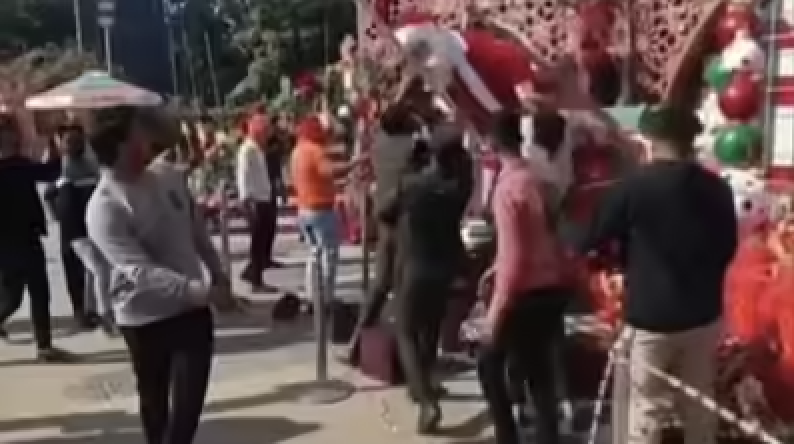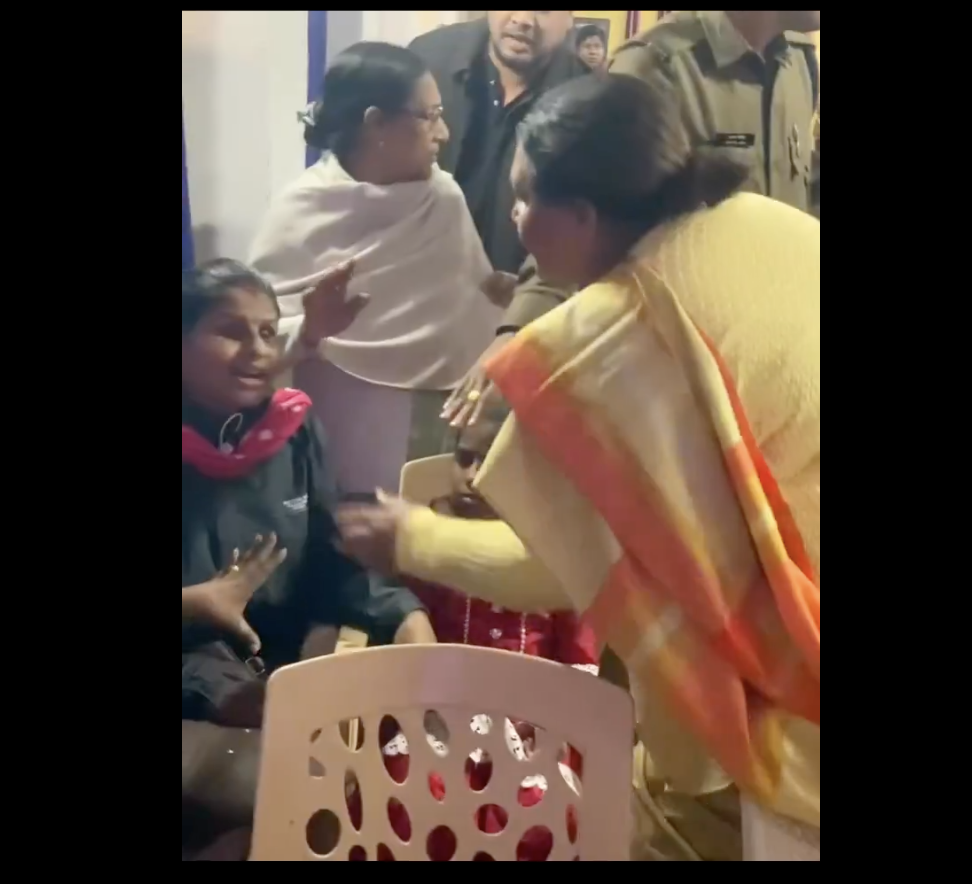
(Photo: Meghnad Bose/The Quint)
By MEGHNAD BOSE
Those were the words of Jai Kumar Gupta, a 32-year-old resident of Mathura who runs a sweet shop in the vicinity of the Krishna Janmabhoomi Mandir and the Shahi Eidgah Masjid.
With the Uttar Pradesh Assembly elections just around the corner, demands by Hindutva groups and senior BJP leaders for a ‘grand temple’ in Mathura have gained electoral and political significance.
Deputy CM Stirs Communal Pot, Draws Polarised Responses
Locals say that UP Deputy CM Keshav Prasad Maurya’s comment, “Grand temples are being built in Ayodhya and Kashi, and preparations are being made for one in Mathura”, are among the key remarks to have stirred the communal pot in the poll-bound state.
Before we take a look at the reactions from locals, here’s the tweet by the Deputy CM.
Even as the administration denied permission for the same, Maurya’s remark kept the ‘Ab Mathura ki baari hai’ conversation going, and was cheered on by people like advocate Mahendra Pratap Singh.
Singh has filed a complaint in a local court in Mathura claiming that the real birthplace of Hindu deity Krishna is where the Shahi Eidgah Masjid currently stands. He is the chief of an outfit known as the Krishna Janmabhoomi Mukti Nyas, and feels that Maurya’s comment shows that the party in power is backing his cause.
But Muslims who live near the masjid are fearful of these developments. Noor Jahan, a 38-year-old homemaker, says “I am afraid of what’s happening, I have my children and my family along with me.”
Others feel that it didn’t befit someone of the rank of Deputy CM to make such a remark. Mohsin Khan, a 20-year-old student, comments, “As a Deputy CM, it doesn’t suit him to make such a communal statement.”
Mohammad Rahees, a 42-year-old anklet artisan concurs, “The statement he gave was not proper. He’s doing this for votes, for the election.”
‘Raising This Mandir-Masjid Issue Now is a Poll Ploy’ Say Both Hindus and Muslims
Regardless of whether they supported the raking up of a mandir-masjid dispute in Mathura or not, almost every Hindu or Muslim resident we spoke to said that the issue was being brought up keeping the upcoming UP Assembly elections in mind.
He adds, “Yes, there should be a temple there, but it looks difficult, because everyone is afraid of a dispute. Here, it is mostly a friendly atmosphere, Hindus don’t create problems for Muslims nor do the Muslims hinder the work of Hindus.”
Mohammad Shabir, a 25-year-old scrap worker, doesn’t share Saini’s view that a mandir “should be there” at the site where the masjid stands, but he agrees with Saini about the reason for the issue being raised now.
Noor Jahan points to the mandir and masjid behind her and quips, “This is used to divert the public’s attention.”
‘Don’t Want Riots or Violence’
A 35-year-old sweet shop owner who goes by the name of Tinku and sells jalebis and samosas from a small shop near the mandir compound, says his only wish is that there is no violence or riots that occur.
But a fellow sweet shop owner Jai Kumar Gupta, whose store is just a stone’s throw away from Tinku’s, doesn’t share his wariness about the mandir-masjid issue taking political centrestage. Gupta says, “Whatever is happening is great and it should happen.”
He adds, “We should remove all the buildings of slavery and show India’s pride again. The ancient things which were ours, should be given back to us. If someone tries to take over my house, the day I come back to power, I will grab back what is mine.”
When we asked Swami Adityanand, a member of the Krishna Janmabhoomi Mukti Nyas, if he’s afraid that the raising of this mandir-masjid dispute will heighten tensions between Hindus and Muslims, with the possibility of a conflict looming large as well, Adityanand replied brazenly, “Whatever tension was created between Hindus and Muslims happened in 1947. What more tension can be caused? Who asked them to stay in this country?”
‘No Attention to Vikas, It’s All About Mandir and Masjid’
“There is no attention towards vikas (development). It’s only about mandir and masjid, mandir and masjid,” laments Mohd Raeesuddin Qureshi, who stays near the two adjacent places of worship.
Shamim, a cooler, a 43-year-old cooler repair worker, remarks in a similar vein, “The government is just trying to polarise the atmosphere. They just need an issue to bank on for the upcoming election, because now they don’t have any. They have failed on inflation and on providing jobs. They cannot highlight their achievements anyway, so they just need an issue now to politicise.”
Reminiscing about his younger days, Shamim says, “During my childhood, we used to play kabaddi and other games with our friends, in the janmabhoomi complex. We used to go and play there at any time of the day, morning or night. I had several Hindu friends with whom I’d play, and we are as close as family even now. Earlier, there was no security, no police personnel stationed here.”
Noor Jahan says that the deepening communal divide has affected her long-time friendships too. “Those who spread hate have mixed just so much hatred between us that it has changed our friendships. Only a few of our friends have stayed the same way as before. We used to celebrate festivals together, but now a lot has changed.”
Despite all of this though, there are those like Tinku and Mohsin who hold out hope.
Tinku, a Hindu sweet shop owner, is confident that Mathura is a place where people do not want riots or violence. And Mohsin, a young Muslim student, comments that “No matter how strong hatred becomes, one day it will have to lose to the power of love.”






